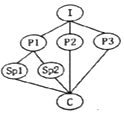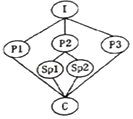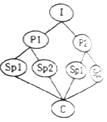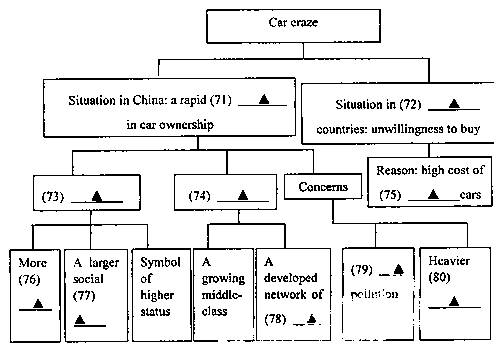-
Right now in the Pacific Northwest, the local Lummi tribe is reminding us of our connection to nature, pushing us to question how we treat other species and demanding the release of a captive killer whale from Miami Seaquarium. Many local cultures have known for thousands of years that the success and sustainability of society depend upon our relationship to the natural environment have tried at great lengths to share this knowledge with us. And it's about time that we listened.
As a conservation biologist, my job is to conduct research that helps protect Earth's biodiversity. From my scientific perspective, I back the Lummi's call to release Lolita back into her native waters. Unlike other captive killer whales that were born at amusement parks, Lolita was taken directly from her native environment, which luckily has remained. This means that the likelihood of a successful reintroduction is quite high.
Why? First, because Lolita already knows how to hunt from her younger years in the Salish Sea before she was taken. Proponents of keeping killer whales captive often say that the whales are not equipped with the skills to know how to hunt and survive in the wild. This is not the case for Lolita.
Second, the fact that Lolita's family still exists and that her mother is still alive means the chances of her being accepted back into the family are quite high. In addition to their 80-year lifespans, killer whales have also been shown to long-term memories. That makes it very likely that Lolita's family will remember her and welcome her back. The fact that Lolita's mother is still alive is particularly exciting because killer whale families are matriarchal, meaning that the female members of the families largely shape the group's social structure.
From my conservationist perspective, I also back the call to free Lolita. Her family belongs to a group known as "southern resident killer whale," an endangered species whose populations are not doing well. By bringing Lolita home to the Salish Sea, we are effectively adding one more re-productively mature female into the population. If Lolita reproduces, her offspring will help maintain the wild population of wild resident killer whales.
From an ethical perspective, I support the release of Lolita because it is the right thing to do. We know that killer whales are intelligent, and that they are highly social creatures, parallel to Primates (灵长类) and yes, humans too. What does it mean for us as a society that we allow the captivity of intelligent marine mammals for our own amusement? If we cannot begin to value the diversity of life on this planet, how are we going to be able to value the diversity of life within the human race?
The release of Lolita would be a victory for the Lummi, for science-based conservation and for repairing the relationships between humans and other species. As Martin Luther King Jr. once put it, One day the ridiculousness of the almost universal human belief in the slavery of other animals will be apparent. We shall then have discovered our souls and become worthier of sharing this planet with them.
1.What does NOT contribute to the successful reintroduction of Lolita?
A.The native living environment of Lolita has remained.
B.Lolita learned the survival skills at Miami Seaquarium.
C.Killer whales have long lifespans and long-term memories.
D.Lolita's mother is still alive and plays a decisive role in the family.
2.What can be inferred if Lolita is released?
A.The ecological balance of Pacific Ocean will be disturbed.
B.The population of the endangered species may stop decreasing.
C.People will value the diversity of life within the human race.
D.The Lummi tribe may gain enormous economic benefits.
3.Which of the following shows the development of ideas in the passage?
I: Introduction P: Point Sp: Sub-point (次要点) C: Conclusion
A. B.
B. C.
C. D.
D.
4.What's the main purpose of this passage?
A.To call on Seaquariums to stop using animals for entertainment.
B.To introduce the local Lummi culture to the world.
C.To support the proposal to free Lolita the killer whale.
D.To encourage people to live in harmony with animals.
-
In the Pacific Northwest there is a kind of owl (猫头鹰) that serves as a unique piece to the Northwest habitat (栖息地) — the northern spotted owl.
Northern spotted owls are known to be curious. When seeing you, these owls will come down close and check you out.
The northern spotted owl has been a savior of old-growth forests. Old-growth forests are forests that have been around for a long time without significant disturbances. One way the spotted owl has become a protector of old-growth forests is simply by being there. The northern spotted owl has become endangered, and so to protect them from dying out, the government has to protect their habitat. So now any destruction of old-growth forests is illegal. Another way the owls help their habitat is by eating small animals. This helps create a balance in the forest.
So, if the northern spotted owl is in a habitat that is protected by laws, why are they still endangered?
Unfortunately, a cousin of the northern spotted owl has moved into its neighborhood. The bigger, more aggressive “barred owl” has grown in population and due to loss of the forests they lived in on the East Coast of the United States, they have begun to move to the west coast.
These owls are taking the food source and pushing northern spotted owls out of their own home. Although the barred owl is able to live in different habitats, the northern spotted owl can only live in old-growth forests.
Many government officials have been at a loss to find an answer to the difficult question, “What do we do with the non-native barred owls?” Some methods include shooting them. It is a difficult problem to deal with. Can you think of any possible solutions?
1.The northern spotted owl ________.
A. is particular about its food
B. has difficulty adapting to a new habitat
C. seems dangerous and aggressive
D. is a common bird in the USA
2.Old-growth forests seem to ________.
A. become less safe for the owls
B. benefit from northern spotted owls
C. be in danger of dying out
D. regrow at a fast speed
3.Northern spotted owls are in danger mainly because of ________.
A. illegal hunting
B. the destruction of the forests
C. another kind of owl
D. environmental pollution
4.The methods being used to help northern spotted owls are ________.
A. creative B. far-sighted C. unbearable D. ineffective
-
The deadliest Ebola(埃博拉病毒) outbreak in recorded history is happening right now. The outbreak is unprecedented(空前的) both in the number of people who have gotten sick and in the geographic scope. And so far it’s been a long battle that doesn’t appear to be slowing down.
Ebola is both rare and very deadly. Since the first outbreak in 1976, Ebola viruses have infected thousands of people and killed roughly killed 60 percent of them. Symptoms can come on quickly and kill fast.
The current outbreak started in Guinea sometime in late 2013 or early 2014. It has since spread to Sierra Leone and Liberia, including some capital cities. And one infected patient traveled on a plane to Nigeria, where he spread the disease to several others and then died. Cases have also popped up in various other countries throughout the world, including in Dallas and New York City in the United States.
The Ebola virus has now hit many countries, including Guinea, Liberia, Sierra Leone, Nigeria, Senegal, and the United States. The virus, which starts off with flu-like symptoms and sometimes ends with bleeding, has infected about 6,500 people and killed more than 3,000 since this winter, according to the World Health Organization on September 30, 2014.
There are some social and political factors contributing to the current disaster. Because this is the first major Ebola outbreak in West Africa, many of the region’s health workers didn’t have experience or training in how to protect themselves or care for patients with this disease.
Journalist David Quammen put it well in a recent New York Times article, “Ebola is more dangerous to humans than perhaps any known virus on Earth, except rabies(狂犬病) and HIV. And it does its damage much faster than either.”
Hopefully, researchers are working to find drugs, including a recent $50 million push at the National Institutes of Health. And scientists are working on vaccines(疫苗), including looking into ones that might be able to help wild chimpanzees, which are also susceptible to the disease. The first human Ebola vaccine trial is scheduled to start in the spring of 2015.
1.According to the passage, which of the following about Ebola is true?
A. The Ebola outbreak now is the biggest one in history.
B. Ebola breaks out quickly but it is under control now.
C. Ebola is deadly and common so it kills a lot of people.
D. Ebola killed about 60 thousand people quickly in 1976.
2.The Ebola virus was brought to Nigeria by .
A. a flying bird B. an infected passenger
C. hot African weather D. a health organization
3.The symptoms of Ebola at the beginning are more like those of .
A. flu B. rabies
C. HIV/AIDS D. internal bleeding
4.The last paragraph mainly tells us that .
A. it will be a huge waste when researchers spend lots of money finding a cure
B. the vaccines can be effective to wild chimpanzees but not to the humans
C. there will be an optimistic future in which we can defeat the disease
D. we can use the vaccine to cure the patients completely in 2015’s spring
5.What is the best title of the passage?
A. Ebola ---- The African Local Disaster
B. Ebola ---- The Newly-Found Disease
C. Ebola ---- A More Effective Vaccine
D. Ebola ---- The Deadly Virus Outbreak
-
The deadliest Ebola(埃博拉病毒) outbreak in recorded history is happening right now. The outbreak is unprecedented(空前的) both in the number of people who have gotten sick and in the geographic scope. And so far it’s been a long battle that doesn’t appear to be slowing down.
Ebola is both rare and very deadly. Since the first outbreak in 1976, Ebola viruses have infected thousands of people and killed roughly killed 60 percent of them. Symptoms can come on quickly and kill fast.
The current outbreak started in Guinea sometime in late 2013 or early 2014. It has since spread to Sierra Leone and Liberia, including some capital cities. And one infected patient traveled on a plane to Nigeria, where he spread the disease to several others and then died. Cases have also popped up in various other countries throughout the world, including in Dallas and New York City in the United States.
The Ebola virus has now hit many countries, including Guinea, Liberia, Sierra Leone, Nigeria, Senegal, and the United States. The virus, which starts off with flu-like symptoms and sometimes ends with bleeding, has infected about 6,500 people and killed more than 3,000 since this winter, according to the World Health Organization on September 30, 2014.
There are some social and political factors contributing to the current disaster. Because this is the first major Ebola outbreak in West Africa, many of the region’s health workers didn’t have experience or training in how to protect themselves or care for patients with this disease.
Journalist David Quammen put it well in a recent New York Times article, “Ebola is more dangerous to humans than perhaps any known virus on Earth, except rabies(狂犬病) and HIV. And it does its damage much faster than either.”
Hopefully, researchers are working to find drugs, including a recent $50 million push at the National Institutes of Health. And scientists are working on vaccines(疫苗), including looking into ones that might be able to help wild chimpanzees, which are also susceptible to the disease. The first human Ebola vaccine trial is scheduled to start in the spring of 2015.
1.According to the passage, which of the following about Ebola is true?
A. The Ebola outbreak now is the biggest one in history.
B. Ebola breaks out quickly but it is under control now.
C. Ebola is deadly and common so it kills a lot of people.
D. Ebola killed about 60 thousand people quickly in 1976.
2.The Ebola virus was brought to Nigeria by .
A. a flying bird B. an infected passenger
C. hot African weather D. a health organization
3.The last paragraph mainly tells us that .
A. it will be a huge waste when researchers spend lots of money finding a cure
B. the vaccines can be effective to wild chimpanzees but not to the humans
C. there will be an optimistic future in which we can defeat the disease
D. we can use the vaccine to cure the patients completely in 2015’s spring
4.What is the best title of the passage?
A. Ebola ---- The African Local Disaster
B. Ebola ---- The Newly-Found Disease
C. Ebola ---- A More Effective Vaccine
D. Ebola ---- The Deadly Virus Outbreak
-
The deadliest Ebola(埃博拉病毒) outbreak in recorded history is happening right now. The outbreak is unprecedented(空前的) both in the number of people who have gotten sick and in the geographic scope. And so far it’s been a long battle that doesn’t appear to be slowing down.
Ebola is both rare and very deadly. Since the first outbreak in 1976, Ebola viruses have infected thousands of people and killed roughly killed 60 percent of them. Symptoms can come on quickly and kill fast.
The current outbreak started in Guinea sometime in late 2013 or early 2014. It has since spread to Sierra Leone and Liberia, including some capital cities. And one infected patient traveled on a plane to Nigeria, where he spread the disease to several others and then died. Cases have also popped up in various other countries throughout the world, including in Dallas and New York City in the United States.
The Ebola virus has now hit many countries, including Guinea, Liberia, Sierra Leone, Nigeria, Senegal, and the United States. The virus, which starts off with flu-like symptoms and sometimes ends with bleeding, has infected about 6,500 people and killed more than 3,000 since this winter, according to the World Health Organization on September 30, 2014.
There are some social and political factors contributing to the current disaster. Because this is the first major Ebola outbreak in West Africa, many of the region’s health workers didn’t have experience or training in how to protect themselves or care for patients with this disease.
Journalist David Quammen put it well in a recent New York Times article, “Ebola is more dangerous to humans than perhaps any known virus on Earth, except rabies(狂犬病) and HIV. And it does its damage much faster than either.”
Hopefully, researchers are working to find drugs, including a recent $50 million push at the National Institutes of Health. And scientists are working on vaccines(疫苗), including looking into ones that might be able to help wild chimpanzees, which are also susceptible to the disease. The first human Ebola vaccine trial is scheduled to start in the spring of 2015.
1.According to the passage, which of the following about Ebola is true?
A. The Ebola outbreak now is the biggest one in history.
B. Ebola breaks out quickly but it is under control now.
C. Ebola is deadly and common so it kills a lot of people.
D. Ebola killed about 60 thousand people quickly in 1976.
2.The Ebola virus was brought to Nigeria by .
A. a flying bird
B. an infected passenger
C. hot African weather
D. a health organization
3.The symptoms of Ebola at the beginning are more like those of .
A. flu B. rabies
C. HIV/AIDS D. internal bleeding
4.The last paragraph mainly tells us that .
A. it will be a huge waste when researchers spend lots of money finding a cure
B. the vaccines can be effective to wild chimpanzees but not to the humans
C. there will be an optimistic future in which we can defeat the disease
D. we can use the vaccine to cure the patients completely in 2015’s spring
5.What is the best title of the passage?
A. Ebola ---- The African Local Disaster
B. Ebola ---- The Newly-Found Disease
C. Ebola ---- A More Effective Vaccine
D. Ebola ---- The Deadly Virus Outbreak
-
You can’t move in right now. The house _____ now.
A. has painted B. is painted
C. is being painted D. is painting
-
Attention!_______ in the form right now,making sure that every detail supplied is accurate.
A. Filling B. Fill C. To f ill D. Being filled
-
Attention! ________ in the form right now, making sure that every detail supplied is accurate.
A.Fill B.Filling
C.To fill D.Being filled
-
Attention! _________ in the form right now, making sure that every detail supplied is accurate.
A.Filling B.Fill C.To fill D.Being filled
-
请认真阅读下面短文,并根据所读内容在文章后表格中的空格里填入最恰当的单词。注意:每空格只填1个单词。
The Auto Show, which is being held right now in Beijing, has risen to the top ranks of global auto industry events, as China has become the world's biggest auto market.For many Chinese youngsters, having a car has become a new lifestyle reflecting freedom and success
First, there is the thrill of individual mobility and freedom, going from one place to another in their own time, and on their own terms.
"I like the speed; I like the freedom; I can't imagine not having a car," Hou Mingxin, 39, owner of two cars, told the Financial Times.
And these youngsters don't just want freedom through car ownership, but also a larger social circle.Thanks to the Internet, car owners can band together for leisure activities, such as going strawberry picking in the countryside.It is an activity that many car lovers would never have attempted without the benefits of a car.
In China, the car is also a status symbol."It's an opportunity to declare personal success," said Michael Dunne, a Shanghai-based managing director of J.D.Power and Associates, an auto industry group."The small, environmentally-friendly models are not best sellers in China.The Chinese are crazy about big cars, a symbol of achievement," said Dunne.
Thanks to a growing middle-class, and an increasingly developed network of roads, the number of car owners in China is rapidly increasing. China last year replaced the US and became the world's largest car market with 13.6 million vehicles sold.
But the car craze(狂热) has raised environmental and traffic concerns. Many worry that car emissions could take pollution to a new level. Heavy traffic also troubles many Chinese cities.
China is discovering the romance of the road just as developed countries seem to have lost it. “The younger generation in mature markets is unwilling to buy cars, especially in Europe and Japan," says Klaus Paur, of TNS Auto in Shanghai.
In developed countries, owning a car can be expensive, with the parking fees car insurance and various taxes, said a 2008 article in US magazine Newsweek.
"Having a car is so 20th century," Kimiyuki Suda, a young white collar worker from Tokyo told Newsweek.He mostly uses subways and trains."It's not inconvenient at all."

 B.
B. C.
C. D.
D.
